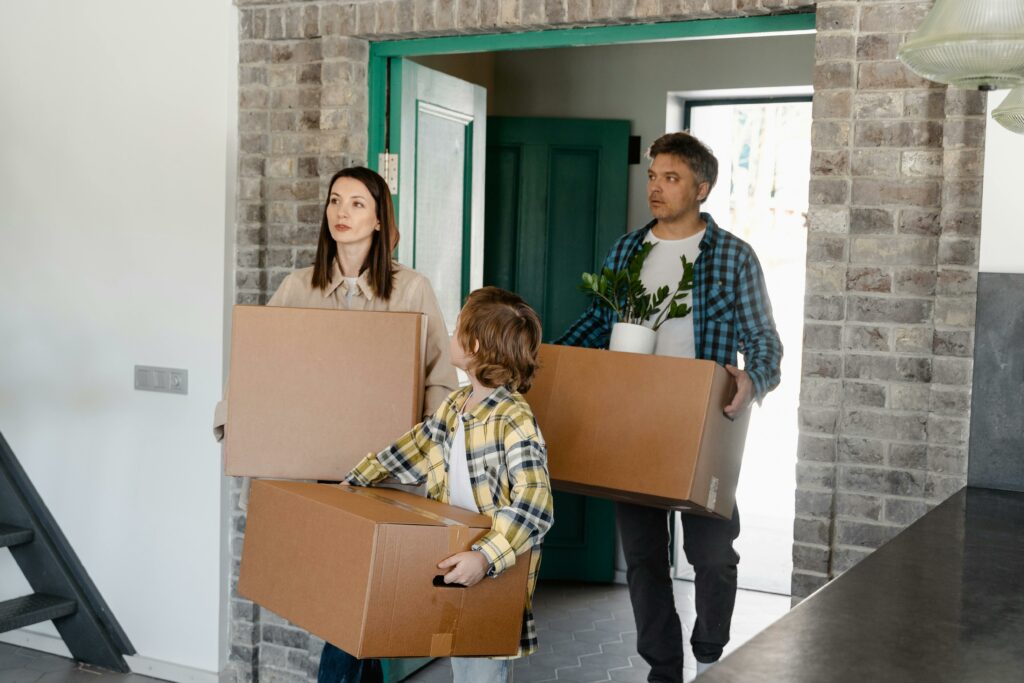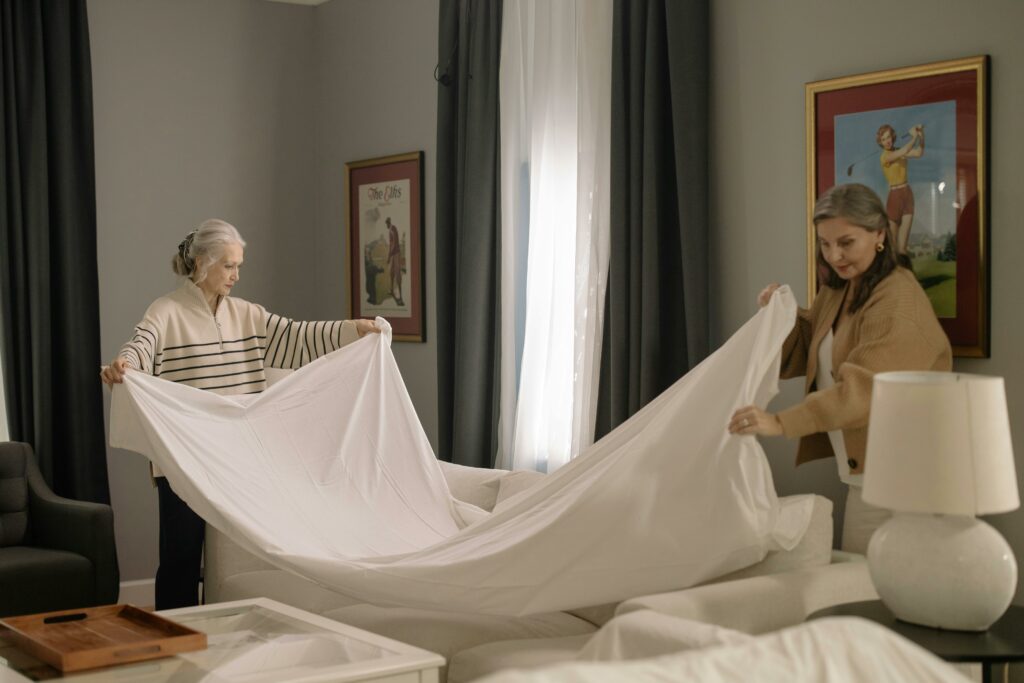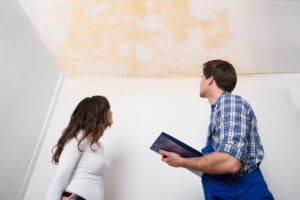Security deposits are a safety net for both landlords and tenants, ensuring a smooth rental experience. For landlords, these deposits offer protection against damages beyond normal wear and tear. Meanwhile, tenants can use them as a form of financial security. They cover the would-be costs from repairs, which takes away the added financial burden of moving out.
However, despite mutual benefits, conflicts still cloud what should be a straightforward process. From disagreements over deductions to disputes about the return timeline, these issues can strain landlord-tenant relationships and lead to legal battles.
With that in mind, you must know your rights and responsibilities as a renter in Utah, which you can learn more about below.
Understanding Security Deposits in Utah
When it comes to renting, security deposits are a landlord’s protection against damages or unpaid rent. Essentially, these funds provide a financial buffer, ensuring landlords aren’t left with hefty bills for repairs or cleaning once a tenant moves out. With security deposits, they can ensure their investment is protected for the duration of the lease.
In Utah, the state implements rental laws for security deposits. The Utah rental deposit law, Utah Code Title 57 Chapter 17, outlines the regulations about security deposits for residential rental properties in the state. It sets forth guidelines for handling security deposits, including the maximum amount landlords can charge and the timeframe for returning deposits after a tenant moves out.
As a tenant, you must familiarize yourself with these regulations to ensure your rights are upheld. Compliance with the Utah security deposit laws is a legal obligation that both landlords and tenants must uphold.
How Much Can Landlords Charge for a Security Deposit?
While the Utah landlord-tenant law for security deposits doesn’t set a specific limit on how much landlords can charge, they use various factors to determine the amount. Here are a few factors that landlords consider when setting an amount for their property’s security deposit.
- Condition of the property
Before renting out a property, landlords assess its current state to determine the appropriate security deposit amount. If a property is in excellent condition, they may set a standard security deposit, which is fully refundable, provided the property is returned in the same condition. Conversely, properties that show signs of wear or require maintenance may command a higher deposit to cover any future repairs.
Ultimately, the initial state of the property influences the security deposit’s value, ensuring that landlords have the necessary funds for maintenance should the renter vacate the premises with damages.
- Market demand
Rental market dynamics play a significant role in setting security deposit amounts. In areas with high demand and low supply, landlords typically increase deposit requirements to mitigate the risks of vacancy or property damage.
- Tenant’s credit history
Besides the condition of the property, landlords also evaluate your creditworthiness to gauge your financial capacity for renting. Typically, stronger credit histories may mean lower deposit requirements. Meanwhile, less favorable credit may face higher deposit amounts.
- Length of leases
How long the lease is for can impact security deposit considerations, especially for longer periods. Longer leases may lead to higher deposit amounts to cover potential damages over an extended period.
Most landlords in Utah charge one to two months’ rent for residential properties, which is either refundable or nonrefundable. However, the rental law for security deposits in Utah requires landlords to provide a written notice of how much of it is nonrefundable.
On top of this, landlords reserve the right to collect an additional fee as pet deposits, which they can use to fix any damages that your pet may cause on the premises. But if you have a service animal, you can be exempt from paying this fee in accordance with the Fair Housing Act.
What Can Landlords Deduct from a Security Deposit?
Although a portion of the deposit is nonrefundable, Utah’s security deposit law also includes a section on returns of rental deposits. You must know what deductions landlords can only take from your security deposit to ensure fair returns. These deductions typically include unpaid rent, cleaning costs, and other itemized deductions as indicated in the written landlord-tenant agreement.
Furthermore, they can deduct a portion of the deposit to cover normal wear and tear damage, which is the expected deterioration of a property from ordinary use over time. Examples are minor scuff marks on walls, worn carpet in high-traffic areas, or faded paint.
However, there’s also damage inflicted on the property that goes beyond typical wear and tear, like holes in walls, broken appliances, or significant stains on carpets.
Landlord responsibilities
Upon terminating your tenancy, your landlord must provide you with an itemized statement of deductions within 30 days. The Utah rental deposit return law also mandates that the landlord return any remaining balance of the security deposit to you. With that, they must have sufficient documentation of the rental unit before the tenant moves in to compare its condition at the end of the lease.
This documentation shows the validity of the itemized deductions that the landlord takes from your security deposit. Additionally, it might help them maximize their investment with their home appraisals in Utah.
How Can Tenants Protect Their Security Deposit?
Ensuring the return of your security deposit starts with proactive measures. By taking steps to safeguard your deposit, you can minimize the risk of disputes and maximize your chances of receiving a full refund.
1. Read and understand the lease agreement
Carefully read over all of the terms and conditions pertaining to the security deposit before signing the lease. If there are any questions, don’t be afraid to ask the landlord or property manager. Here, you can protect your rights as indicated in the Utah security deposit law.
2. Do a walk-through inspection before moving in

Conduct a thorough home inspection of the rental property, which you should do when you’re still in the searching phase and before you move in. Once you’ve decided on a place to rent, document any existing damages or issues with photos or videos. Share them with the landlord to avoid disputes later on.
3. Report problems or damages promptly
Another way to uphold the Utah rental deposit laws is to inform the landlord as soon as possible of any problems or damages that you notice during your tenancy. Make repair requests in writing to ensure a record of communication.
4. Maintain cleanliness and property maintenance
Follow the landlord’s rules and policies regarding property upkeep. Keeping the rental unit clean and well-maintained can prevent avoidable damages in addition to normal wear and tear. Ultimately, this can significantly lower potential deductions from your security deposit.
5. Conduct a final walk-through inspection before moving out
Much like inspecting a home before moving in, you should also check the property’s condition when you vacate the premises. You must document the condition of the property with photos or videos so you can have something to compare with the move-in inspection in case you have disputes on the itemized deductions.
6. Leave the property in good condition

The best way to ensure a full rental deposit refund is to return the property in the same or better condition than when you moved in. Remove all personal belongings and trash, and address any necessary cleaning or repairs.
If you encounter any damage or cleanup issues in your rental property, consider working with a professional restoration and cleanup service company like All Dry. We can provide prompt and reliable assistance to prevent any avoidable damage to the property.
Secure Your Tenant Deposit in Full
As a tenant, ensuring your deposit’s full refund hinges on proactive measures and an in-depth understanding of Utah security deposit laws. You must know the factors that can influence your rental security deposit and how much you have to render so you can make an informed decision. Knowing the right tips will likewise help you avoid disputes on rental deposit returns and maximize refunds.
That said, reach out to us at All Dry to enlist our residential restoration services, which will return your rental property in mint condition and ensure a full refund. Contact us today to know more!









